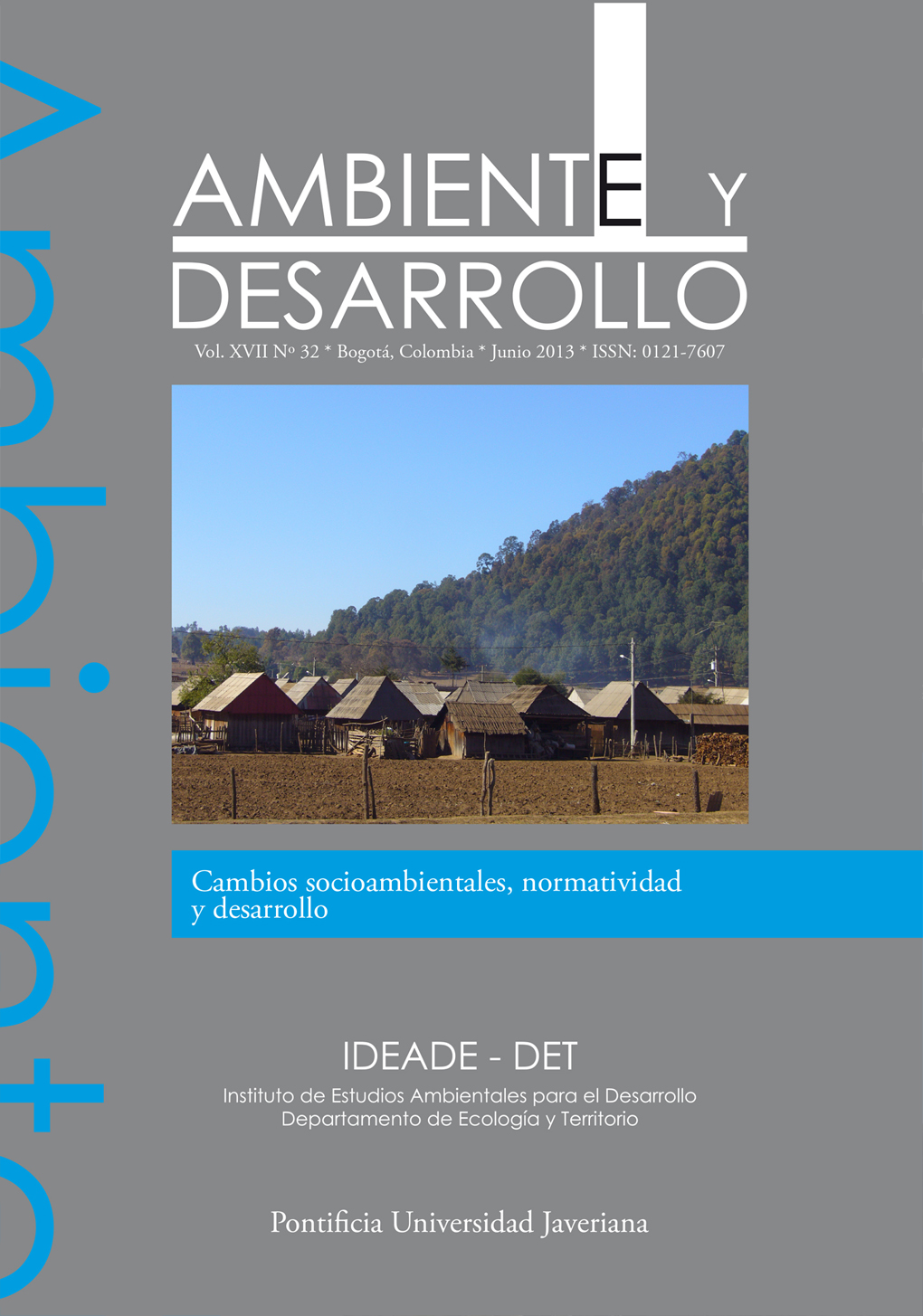Resumen
A partir de la narración del indio Pachacutí este artículo aborda la perspectiva y el modelo de relacionamiento con el ambiente, producto del encuentro-desencuentro con la epistemología occidental. Analiza la forma como en tres relatos "fundantes" de occidente: el
Enuma Elish, el Génesis y el Timéo, se configura una racionalidad objetivante que pone al sujeto como poseedor y dominador de la terra. Por último, estudia la perspectiva kuschiana de la "lógica de la negación" que sin rechazar la epistemología occidental, la retoma y complementa en una racionalidad que no solo se sustenta en la positividad-objetividad sino en la relación simbólico-celebrativa, lo que coincide con los abordajes ecofeministas que postulan nuevas formas de conocimiento que ya no se soporten en una racionalidad del dominio.
Ambiente y Desarrollo se encuentra registrada bajo la licencia Creative Commons Reconocimiento 4.0 Internacional. Por lo tanto, esta obra se puede reproducir, distribuir y comunicar públicamente en formato digital, siempre que se reconozca el nombre de los autores y a la Pontificia Universidad Javeriana. Se permite citar, adaptar, transformar, autoarchivar, republicar y crear a partir del material, para cualquier finalidad (incluso comercial), siempre que se reconozca adecuadamente la autoría, se proporcione un enlace a la obra original y se indique si se han realizado cambios. La Pontificia Universidad Javeriana no retiene los derechos sobre las obras publicadas y los contenidos son responsabilidad exclusiva de los autores, quienes conservan sus derechos morales, intelectuales, de privacidad y publicidad.
El aval sobre la intervención de la obra (revisión, corrección de estilo, traducción, diagramación) y su posterior divulgación se otorga mediante una licencia de uso y no a través de una cesión de derechos, lo que representa que la revista y la Pontificia Universidad Javeriana se eximen de cualquier responsabilidad que se pueda derivar de una mala práctica ética por parte de los autores. En consecuencia de la protección brindada por la licencia de uso, la revista no se encuentra en la obligación de publicar retractaciones o modificar la información ya publicada, a no ser que la errata surja del proceso de gestión editorial. La publicación de contenidos en esta revista no representa regalías para los contribuyentes.


